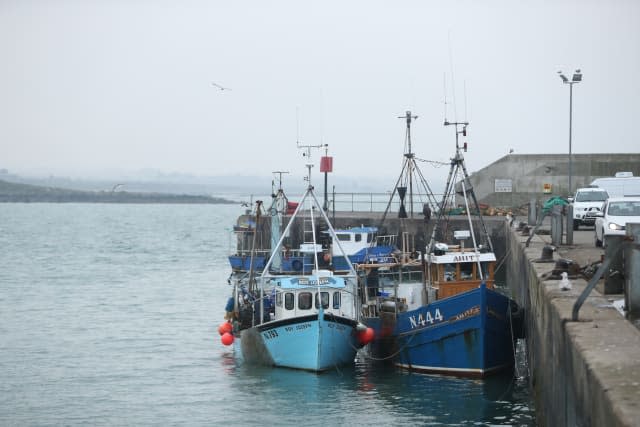Fishing boat captains plead guilty to regulations breach amid Irish dispute

The captains of two Northern Ireland fishing trawlers seized in Dundalk bay have pleaded guilty to breaching fishing regulations.
The Northern Ireland-registered vessels were seized by the Irish navy on Thursday evening amid an ongoing impasse over their right to fish in Ireland’s waters.
Judge John Coughlan told Co Louth District Court that the fishermen, Jack Brown and Kevin Trainor, were “people of absolute integrity” but he was bound by a Supreme Court decision which effectively banned Northern Ireland boats from fishing in Irish inshore waters.
He added he did not feel the men deserved any conviction.
They have been given the benefit of the Probation Act and their boats will be released immediately.

The boats seized, Boy Joseph and Amity, were described as modest vessels, with a total of five staff between them.
The Boy Joseph had just over 1,200 euro worth of shellfish on board when it was seized.
Amity had an estimated 2,000 euro of crab and lobster.
Both men have no previous convictions and fully co-operated with Irish police.
The move by Irish authorities comes amid an ongoing fishing dispute caused by the demise of an informal deal between the UK and Irish governments.
The Voisinage agreement, which collapsed months after the Brexit referendum, was a reciprocal understanding between the UK and Irish Republic dating back to the mid-1960s that allowed vessels from Northern Ireland to fish in Irish inshore waters (zero to six nautical miles from shore) and vice versa.
But the agreement hit the rocks in late 2016 when a number of Irish fishermen brought a case to the state’s Supreme Court, challenging the right of Northern Ireland vessels to fish in their waters.
The court ruled Voisinage was an informal agreement of insufficient legal standing to formally grant access to foreign-registered boats.
That decision effectively banned Northern Ireland boats from fishing in Irish inshore waters – a move that impacted fishermen north of the border who traded in species such as lobsters, crabs, mussels and whelks.
The UK has continued to recognise the Voisinage agreement so Irish vessels remain free to fish inshore waters around Northern Ireland.


